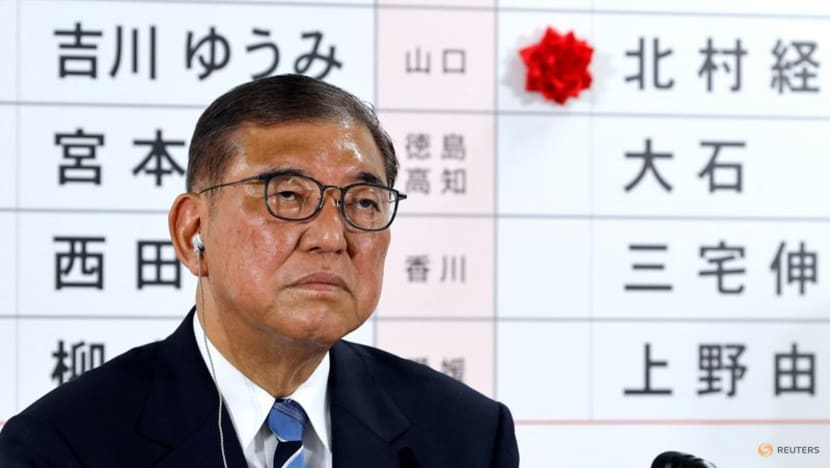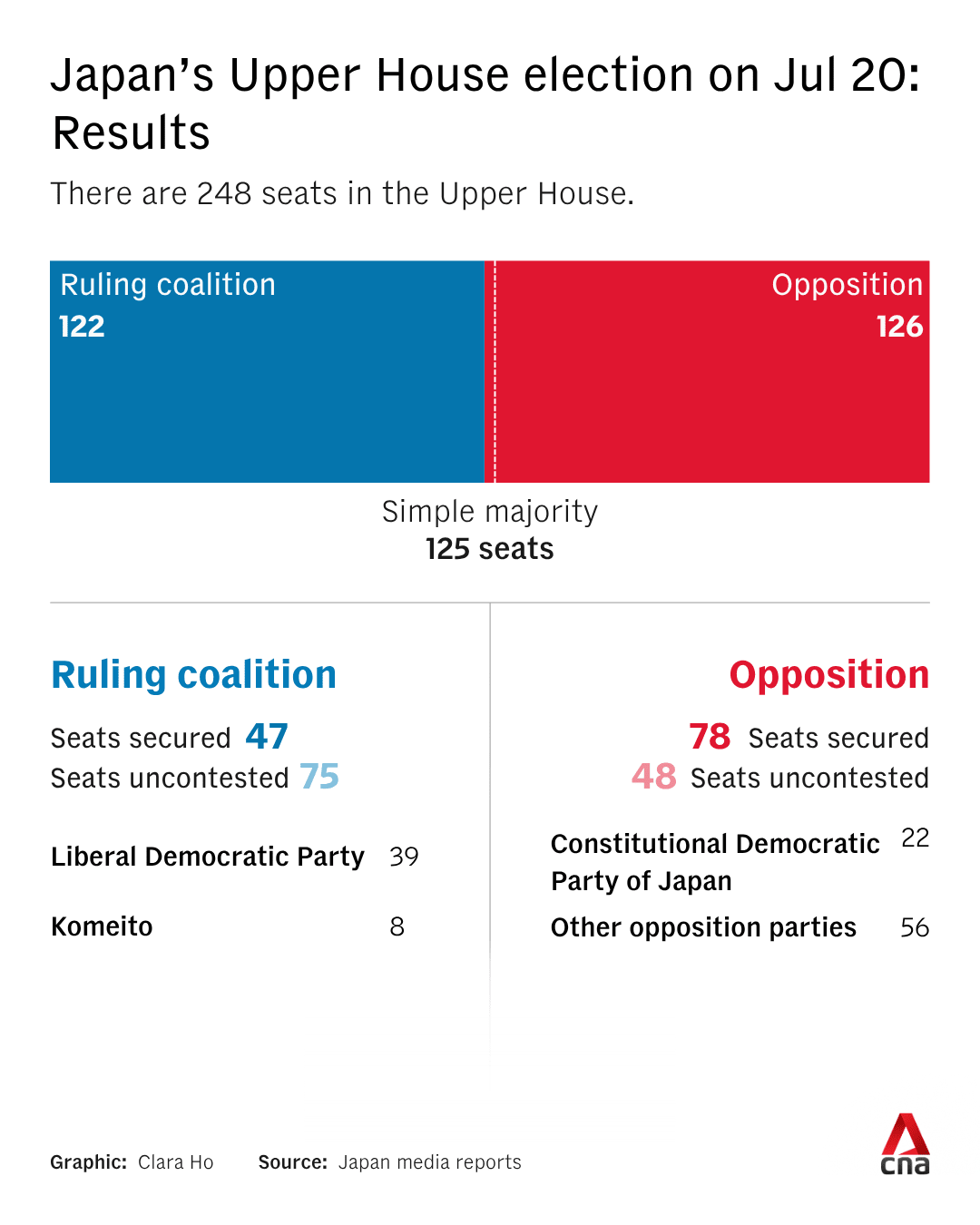Commentary: Japan’s leader has lost his ‘mandate of heaven’
Shigeru Ishiba is clinging on to power after the latest rebuke from the electorate. With crucial trade talks on the line, it’s time for him to go, says Gearoid Reidy for Bloomberg Opinion.

Shigeru Ishiba, Japan's Prime Minister and president of the ruling Liberal Democratic Party (LDP), listens to a question from a journalist at the LDP headquarters, on the day of Upper House election, in Tokyo, Japan Jul 20, 2025. (Photo: Reuters/Franck Robichon/Pool)
TOKYO: Shigeru Ishiba was long considered an outside prospect to become Japan’s leader – so much so that he once said it would take the involvement of the gods themselves. “If I were ever to become prime minister, it would probably be when the Liberal Democratic Party (LDP) or Japan was in serious deadlock,” he wrote in his book published last year. “Unless I receive a mandate of heaven, it’s unlikely to happen.”
After Sunday’s (Jul 20) humiliation at the polls, whatever mandate from heaven he once commanded is lost.
The LDP suffered a devastating loss in the Upper House elections. Ishiba had already set himself the low bar of retaining a majority in the chamber along with long-time coalition partner Komeito. It failed to achieve even that, even if the final results were better than exit polls had suggested.
It’s a rebuke from the electorate that has few parallels outside of times of extreme economic distress, such as when the LDP was ejected from power in 2009 in the aftermath of the global financial crisis.
The brewing matter now is the ongoing trade talks with the United States. But these results show Ishiba no longer has the authority to negotiate them as Japan’s leader.
Against all odds, he was elected LDP leader, and therefore prime minister, after a fractious search in 2024 – with a party tainted by scandal looking for a new face that could win elections. He had previously sought the top office on four separate occasions, and had declared this his last attempt.
With little support from traditional factions, and hewing to a more liberal wing of the party than normally commanded power, his goal seemed quixotic. Nonetheless, he saw off the opposition to realise his four decade-long quest to lead Japan.
A CRISIS OF SHIGERU ISHIBA’S OWN MAKING
This latest crisis was largely of Ishiba’s own making. Upon becoming prime minister last year, he called a snap election – one that wasn’t legally required, and which he initially said he wouldn’t seek.
His purported popularity dissipated instantly, and he was forced into a minority government. His period in power since has been a hodgepodge of temporary alliances just to keep government lights on.

Last month, Ishiba oversaw the most disastrous campaign ever for his party in the Tokyo assembly election. Surely, this third time must be his last chance.
He has been so unpopular with his own party’s candidates that many asked he not show up at rallies. As a result, the LDP was virtually anonymous, and the party that has ruled Japan for most of the last seven decades yielded the debate floor to the opposition. The vote in 2024 left the LDP without accomplishments to run on, while smaller groups with YouTube accounts and gripes about foreigners promised the electorate everything.
In 2009, as a member of then Prime Minister Taro Aso’s Cabinet, Ishiba was among the first to break ranks after an electoral defeat, and call for Aso’s removal. Yet now, in the face of a far worse loss, he insists he will stay on, citing the need to handle the ongoing US tariff talks – discussions he has presided over for three months without the slightest sign of progress.
Ishiba’s smartest political move has been to exploit the threat of US President Donald Trump to extend his own time in power. He cleverly branded the threat of tariffs a “national crisis”, a phrase politicians previously used to describe the likes of the devastating Mar 11, 2011, earthquake.
REJECTED BY VOTERS YET AGAIN
But Sunday’s results leave little doubt. In three major elections in a row, the public has rejected him.
Younger voters and conservatives deserted the LDP in droves, drawn instead to the likes of the fringe right party Sanseito. It’s a movement that I believe won’t last long, but which is attracting right-leaning voters with its populist talk – and nabbing those who would normally lean LDP.
If, like in Aso’s era, there was an organised opposition party waiting in the wings to take power that would be one thing. But the protest vote from a disillusioned electorate has gone instead to cranks and conspiracy theorists.
Ishiba says he must solve the trade issue, but what right does he have to negotiate such long-lasting deals?
No one wants to see a return to the “revolving door” of Japanese politics. But this is an exception. Ishiba must do the right thing and resign. It’s unclear if there’s anyone in the LDP who can salvage the party’s fortunes. But it’s not the current prime minister.















